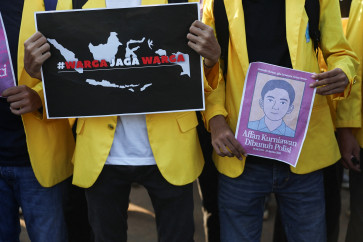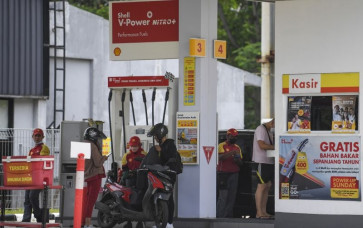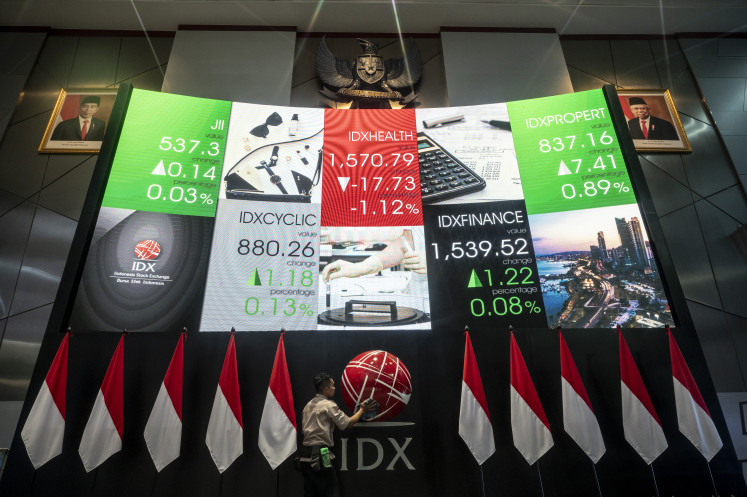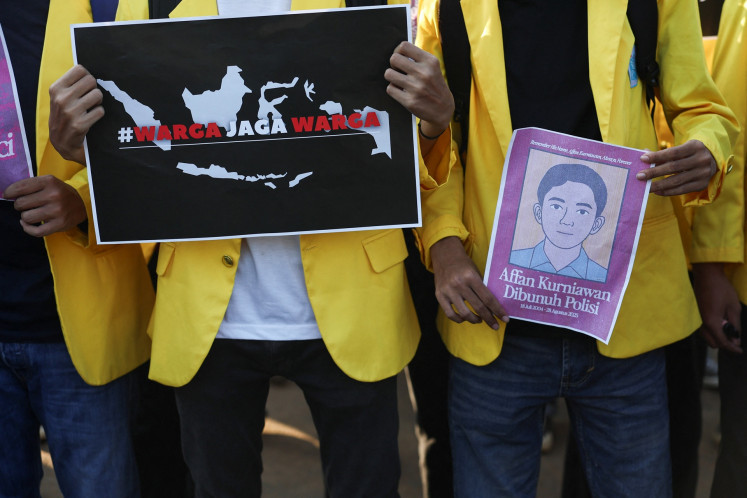Popular Reads
Top Results
Can't find what you're looking for?
View all search resultsPopular Reads
Top Results
Can't find what you're looking for?
View all search resultsIndonesia grows muscle as arms manufacturer
While modernizing its weaponry system, the country’s defense industry has become a competitive producer of weapons and military vehicles, as seen in the surge of exports
Change text size
Gift Premium Articles
to Anyone
While modernizing its weaponry system, the country’s defense industry has become a competitive producer of weapons and military vehicles, as seen in the surge of exports.
Statistics Indonesia (BPS) recorded growth in defense equipment exports in January-September, an increase of 500 percent to US$479,500 from the same period in 2018. The main export destinations for weapons and ammunition were South Africa, Belgium and Japan.
The country also exports combat vehicles to various countries, recording an increase of 38 percent to $1.07 billion during the first nine months of the year. The main destinations for the combat vehicles were the Philippines, Vietnam and Thailand.
In his first two months serving as defense minister, Prabowo Subianto has toured countries and received visits from his counterparts, during which he has actively marketed Indonesian defense equipment.
The minister’s spokesperson, Dahnil Anzar Simanjuntak, said the ministry had secured new purchase deals for state-owned weapons manufacturer PT Pindad from several countries following Prabowo’s round of meetings.
“Laos, Ghana and the United Arab Emirates are thinking about purchasing more defense equipment from Pindad,” he told The Jakarta Post on Friday.
Pindad corporate secretary Tuning Rudyati confirmed the aforementioned countries had expressed interest in purchasing defense equipment from Indonesia.
“They are mostly interested in buying SS2 [long-barreled weapons] and vehicles, both panzers [big tanks] and medium tanks,” Tuning told the Post.
With the UAE, according to Dahnil, the government has agreed to jointly produce weapons and tank boats. Pindad will partner with Caracal International, the country’s leading arms producer. The company has a portfolio that includes the technologically advanced 9mm striker-fired combat pistol and three modular sniper rifles.
Pindad will also work together with Abu Dhabi’s Al Seer Marine Technologies to produce tank boats. The company specializes in developing tailored unmanned surface vessels.
Indonesia has prioritized defense in the past decade. The Stockholm International Peace Research Institute recorded that Indonesia was the country with the second-largest military expenditure in Southeast Asia in 2018, spending $7.44 billion, 0.7 percent of its gross domestic product (GDP). It only came second to Singapore, which had spent $10.84 billion, 4.9 percent of its GDP.
Worldwide, Indonesia ranks at 26th, with the United States topping the chart with $649 billion, 3.2 percent of its GDP.
In President Joko “Jokowi” Widodo’s first term, however, the government missed the target of its weaponry modernization program, the Minimum Essential Force, reaching only 62.8 percent implementation, far behind the targeted 72 percent.
Aside from the setbacks, the government has improved the defense industry through several bilateral agreements to produce weaponry. One strategic partnership is with South Korea to develop the KF-X jet fighter, which is designed to be a cheaper alternative to the American-made F-35.
International relations experts have praised Prabowo’s move, saying that it is a great way to start defense diplomacy for Jokowi’s second term.
Indonesian Institute of Sciences (LIPI) senior international relations researcher Dewi Fortuna Anwar said defense equipment exports would level up Indonesia’s position among other countries.
She argued that the considerable warm welcome from other countries indicated that they had started to increase their trust in defense system products from Indonesia, which in return, would also benefit the country since it could ask them for help in case of a threat that could harm its sovereignty.
“There are at least two things that Indonesia will gain from exporting defense equipment: they [the partnering countries] will have acknowledged that Indonesia produces high-quality defense equipment and they will also see Indonesia as their friend,” Dewi told the Post on Sunday.
She also believed Indonesia could easily sell defense equipment since it had less geopolitical influence than other countries with more sophisticated defense systems, such as the US and Russia.
Dewi said when countries purchased weapons from Russia or the US, it could be perceived as them wanting to show an alliance with either of those countries, therefore purchasing weapons from Indonesia would be a neutral decision for them.
“It’s a good step for the government toward 2045, when our country is projected to become one of five countries with the biggest GDPs in the world, while at the same time is respected for having such high quality defense equipment,” said Hikmahanto Juwana, an international law expert at the University of Indonesia (UI).
He said Indonesia would still face fierce competition from countries that had long provided arms and weapons to other countries, such as the US and Russia, while expanding its defense exports.
Prabowo visited Malaysia, Thailand, Turkey, China and Japan during his first round of trips as defense minister.
Prabowo met with President Recep Tayyip Erdogan in Turkey and discussed potential cooperation, including in enhancing the capabilities of defense equipment, as well as the education and training of military personnel. The two countries have agreed to produce medium-sized tanks together. The tanks are expected to enter production in 2020.
In China, Prabowo discussed the development of defense technology with the deputy director general of the National Institute for Science, Technology and National Defense Industry, Xu Zhanbin, and a number of strategic state-owned enterprises in China’s strategic industries, including China Precision Machinery Import-Export Corporation, Norinco and China Electronics Technology Group Corp. (glh)










